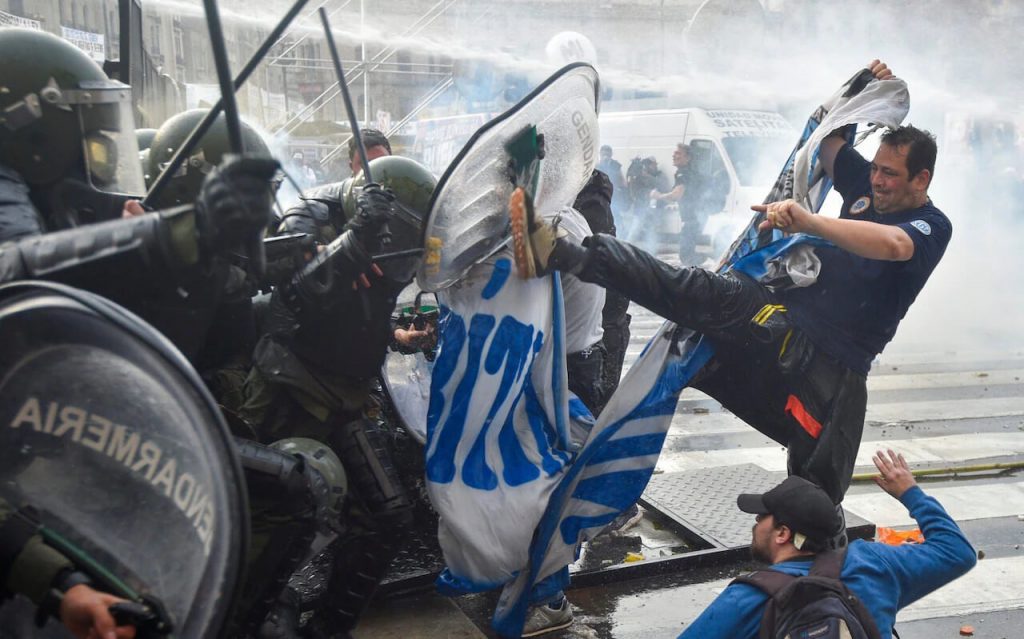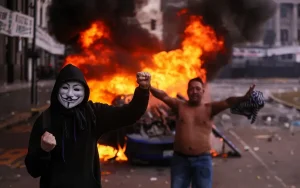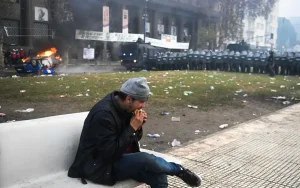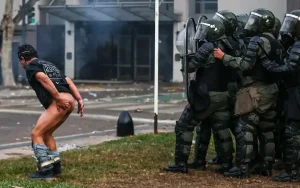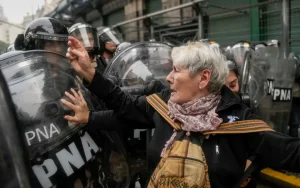Tensions boiled over in Buenos Aires as Argentina’s Senate narrowly approved President Javier Milei’s contentious economic reform package. The streets outside the parliament descended into chaos, with police clashing violently with protesters rallying against the president’s “shock therapy” measures.
“For those Argentines who suffer, who wait, who do not want to see their children leave the country… my vote is affirmative,” Vice President Victoria Villaruel declared, breaking the 36-36 tie in the Senate after hours of heated debate.
The preliminary approval of the slimmed-down 238-article bill, which includes declaring a one-year economic emergency, privatizing state-owned companies, and weakening labor protections, was marred by escalating unrest outside. Protesters hurled petrol bombs and stones at riot police, who retaliated with tear gas, water cannons, and rubber bullets.
We cannot believe that in Argentina we are discussing a law that will put us back 100 years,” lamented 55-year-old lawyer Fabio Nunez, among the demonstrators.
At least 10 protesters were arrested, and nine police officers sustained injuries. Seven people, including five lawmakers, required hospital treatment after being exposed to pepper spray. The president’s office condemned “terrorist groups” attempting a “coup d’etat.
The clashes erupted as protesters tried to breach the security fences separating them from the Congress building. As night fell, rioters overturned and set fire to two vehicles, including one belonging to a media outlet. In a symbolic moment, a lone protester stood defiantly, saluting a phalanx of riot police amid swirling smoke.
Opposition lawmakers decried the reforms as a reversal of decades of progress. “The labor reforms take us back to the last century when the employee had no labor rights,” argued Senator Mariano Recalde.
Milei’s “anarcho-capitalist” administration, which inherited an economy mired in recession and hyperinflation, has struggled to pass legislation through the opposition-controlled Congress. Since taking office in December, the president has slashed public spending and subsidies, exacerbating economic hardship for many Argentines.
As the contentious reforms advance, the nation remains deeply divided over Milei’s radical economic agenda.

